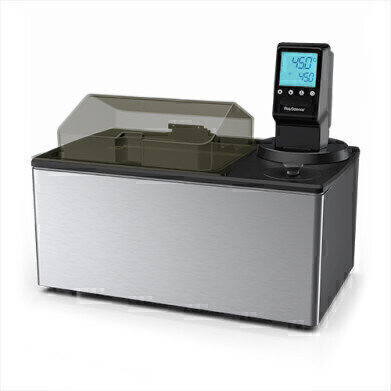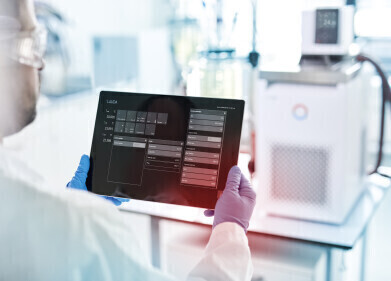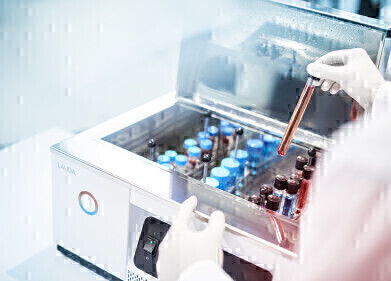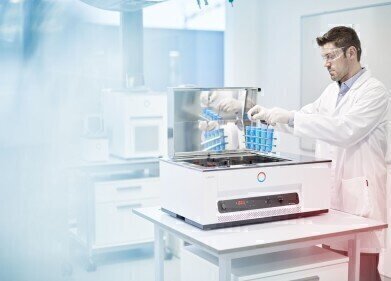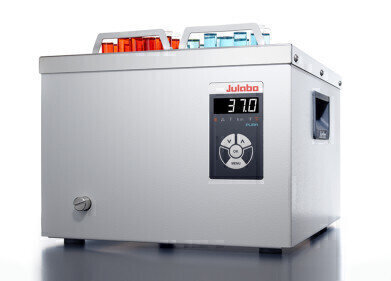Water baths
Not Too Hot, Not Too Cold: How PolyScience's Water Baths Deliver Precision in Coliform Testing
Jul 03 2019
Of all the threats to human health from contaminated drinking water, the risk of consuming pathogens from human or animal excrement is the most severe and the most common. Fecal contamination can cause serious, potentially fatal, illness like acute gastroenteritis, giardiasis, ameobiasis, or cryptosporidiosis. As the world’s population grows, and subsequent pressure on the drinking water supply, the ability to quickly and accurately assess the quality of water samples is essential for ensuring drinking water safety and public health.
Drinking water contamination, even in developed countries like the USA, is surprisingly common. A recent study found that between 1982 and 2015, between nine and 45 million Americans per year were exposed to water sources that did not meet the Environmental Protection Agency’s standards. Around the world, the WHO estimates that over two billion people drink water contaminated with feces leading to the deaths of half a million people from diseases such as diarrhea, cholera and dysentry.
As one of the most established methods for detecting potentially harmful bacteria in water samples, coliform testing is the gold-standard approach required by international guidelines on water safety. The method was initially developed because of the difficulties of detecting individual pathogens in the water supply. Instead, scientists look for the presence of coliform - a class of bacteria that includes harmful bacteria such as E.coli, but also non-harmful bacteria. Detection of coliform suggests that fecal contamination is present because this class of bacteria will be present in large numbers.
However, coliform testing does have its challenges. In particular, the temperature of the bath used for incubation must be very carefully controlled.
“Fecal coliform testing relies on elevated water bath temperatures to suppress the growth of non-fecal bacteria,” explains Andrew Witt Engineering Manager at PolyScience. “If the water is too warm it may cause the fecal coliform to go dormant, obscuring the level of this harmful bacteria.” On the other hand, says Witt, “If the water is too cold, non-fecal bacteria may be allowed to grow and create false positives.”
Accuracy to order
When it comes to coliform tests, temperature variations as small as 0.2°C can produce erroneous data. That is why PolyScience, experts in temperature control, developed their coliform bath with a temperature accuracy to within 0.07°C, allowing users to rely on their results.
The coliform bath, which has been specifically designed for coliform and E.coli testing, can be used with both the membrane filter method or the most probable number method. It is preconfigured for coliform testing at 44.5°C, but can be altered at the press of a button to a range of presets.
The coliform bath also features PolyScience’s signature gable lid, which not only allows taller vessels to stand upright within the bath, but also permits condensation to quickly drain back into the bath, and not onto the bench!
All of PolyScience’s coliform baths are produced to order – not a common business model for profitability, but certainly a factor which helps to reduce environmental impact. This aligns with one of PolyScience’s core values – they want to deliver the highest standards for the best value, while having a minimal impact on the environment. This extends to their laboratory processes, such as avoidance of the use of solvents, and a dedication to recycling wherever possible. Later this year, they will also be launching their first device to contain a UV light to circumvent the need for algicide, a potential environmental pollutant.
PolyScience president Philip Preston comments: “It is my personal belief that we should be an environmentally responsible company… We’ve taken steps that have reduced our energy consumption annually while increasing production. I believe that we should not only provide the highest quality products but, we should leave the minimal footprint.”
Polyscience offer a personalised, unique and economical approach to water safety testing, helping to face up to the public health challenges of today and tomorrow.
For further information please click here or visit our Facebook page.
Digital Edition
Lab Asia Dec 2025
December 2025
Chromatography Articles- Cutting-edge sample preparation tools help laboratories to stay ahead of the curveMass Spectrometry & Spectroscopy Articles- Unlocking the complexity of metabolomics: Pushi...
View all digital editions
Events
Jan 21 2026 Tokyo, Japan
Jan 28 2026 Tokyo, Japan
Jan 29 2026 New Delhi, India
Feb 07 2026 Boston, MA, USA
Asia Pharma Expo/Asia Lab Expo
Feb 12 2026 Dhaka, Bangladesh
